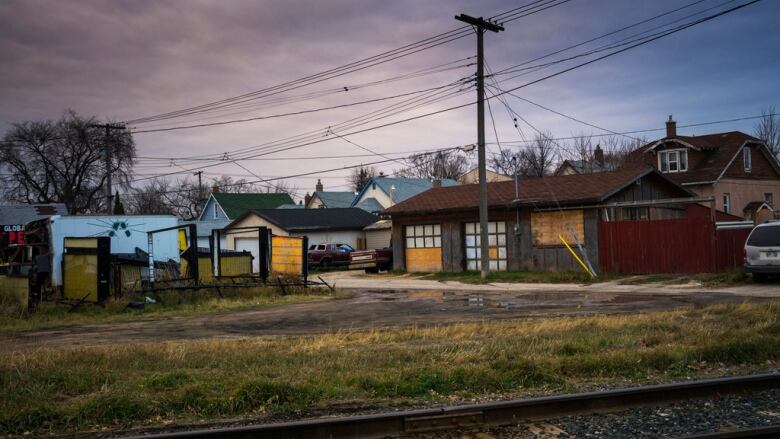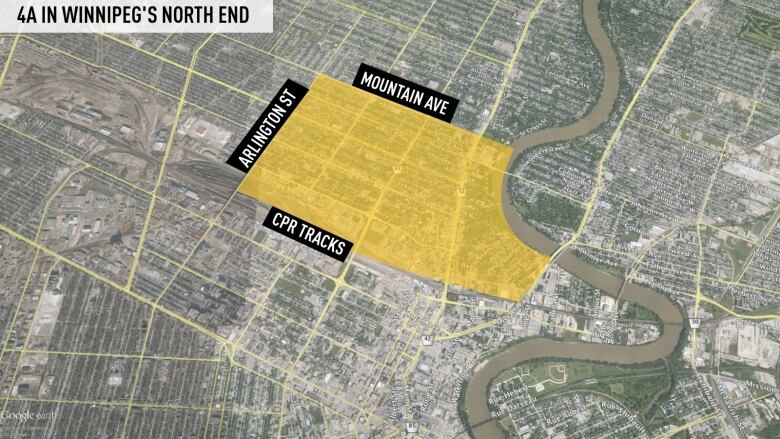Property taxes pose challenge for Winnipeg North End homeowners
The average price of a home in 2015 is $118,000, area still most affordable in Manitoba

It has been called the heart of Winnipeg's North End, and it has been called the hood.
Peter Squire, multiple listing service (MLS) market analyst for Winnipeg Realtors has his own name for it: 4A, or the area where the average sale price for a single-family house is increasing more than anywhere in Manitoba.
Its boundaries extend north of the CPR tracks to Mountain Avenue, and west from Arlington Street to the Red River.

In 2015, the average price of a house within those boundaries has doubled since 2007.
Then, that price was $59,000. As of September 2014, it is $118,000.
"We are seeing prices level off in general in Winnipeg, but the North End's not. It's still gaining,"Squire said.
Despite the climb in price, 4A is still the most affordable place to live in Winnipeg city-wide, the average sale price of a single-family house is $285,000.
"[4A is] the most affordable MLS area we have on our entire market and that includes rural," Squire said.
That affordability, along with efforts to renew the area on behalf of such organizations as the Winnipeg Housing Rehabilitation Corporation, is driving the increase in market value, according to Squire.
"It's not to say there aren't still issues, as we know, in terms of needing more rejuvenation, more investment, but obviously that's a positive that we're seeing that continual [rise in house price]," he said.
But for some neighbourhood residents, there's a downside to the upside.
Nanci Reid, 52, has been living on Dufferin Avenueat McGregor Street since 2006. She bought her 1.5-storey, 970-square foot house for $101,000 and when she moved in, she was paying around $98 per month in property taxes.
"It was probably less than $98 but it was close," she said.
In September 2014, Reid received a city assessment that estimated her house to be worth $144,000, and her property taxes are now $131 per month.
"I was paying last year $101 andchange. And... it went up to $131. It went up [29%]," Reid said.

Ross Eadie, city councilor for Mynarski, says Reid is not alone in facing a considerable raise in property taxes.
He says he has received a number of calls from 4A residents about increasedproperty taxesas the market value of their homes go up, and he has a name for theircircumstances: Asset wealthy, cash poor.
"You probably couldn't have bought the house for $120,000 based on your income, you could only buy it at $60,000," Eadie said.
He described one of the challenges those residents face in an April 2014 article for Canstar Community News.
"Many will say sell your house then and realize the profit, but where will they live then?" he wrote.
"House prices keep going up, apartments are getting higher [in price] and there's a shortage of housing options for renters and seniors."
Reid agrees with Eadie.
"What would I buy that I could afford in Winnipeg?" she asked.
"Like, I'm glad my property's worth so much, [but] I think it's outrageous. Like, if I was going to buy this property now, knowing that's what it was worth, I'd say you'd gotta be joking."
Before 2006, Reid, an administrative assistant, did not think she would have a shot at homeownership. At the time, she was a single mom.
But having to pay $900 a month for a two-bedroom apartment in Manitoba Housing and securing a full-time job led her to explore other options.
She settled on the house she lives in now, thinking in the long run, it would be cheaper than her previous living arrangement.
"But every year, my property taxes go up," she said.
"And $30 [a month] is a lot of money if you don't make a ton of money."
Reid can't understand why her property is assessed to be worth its value,considering how she sees the neighbourhood.
"You know, the hookers that work on Jarvis [Avenue] and stand in your driveway and you know, I pick up condoms and drug bags all the time so my dogs don't eat them," she said.
But sex-trade workers, condoms and drug bags are not what makeReid want to leave the neighbourhood.
"That would be the last thing that would chase me out... because we have a good relationship with the girls who work [in the sex trade]. You know, we rarely see them and if they're here and we want them to move, they'll move," she said.
"The things that would really get me to move are the lack of services from the city and yeah, your property value goes up but for what?"
Reid said she sees no snow clearing or sidewalk repair services in her neighbourhood.
"The crime rate's still brutal, the poverty rate is brutal. It just stays the same," she said.
"Nothing changes in this neighbourhood, except for the property taxes."












_(720p).jpg)


 OFFICIAL HD MUSIC VIDEO.jpg)
.jpg)



























































































